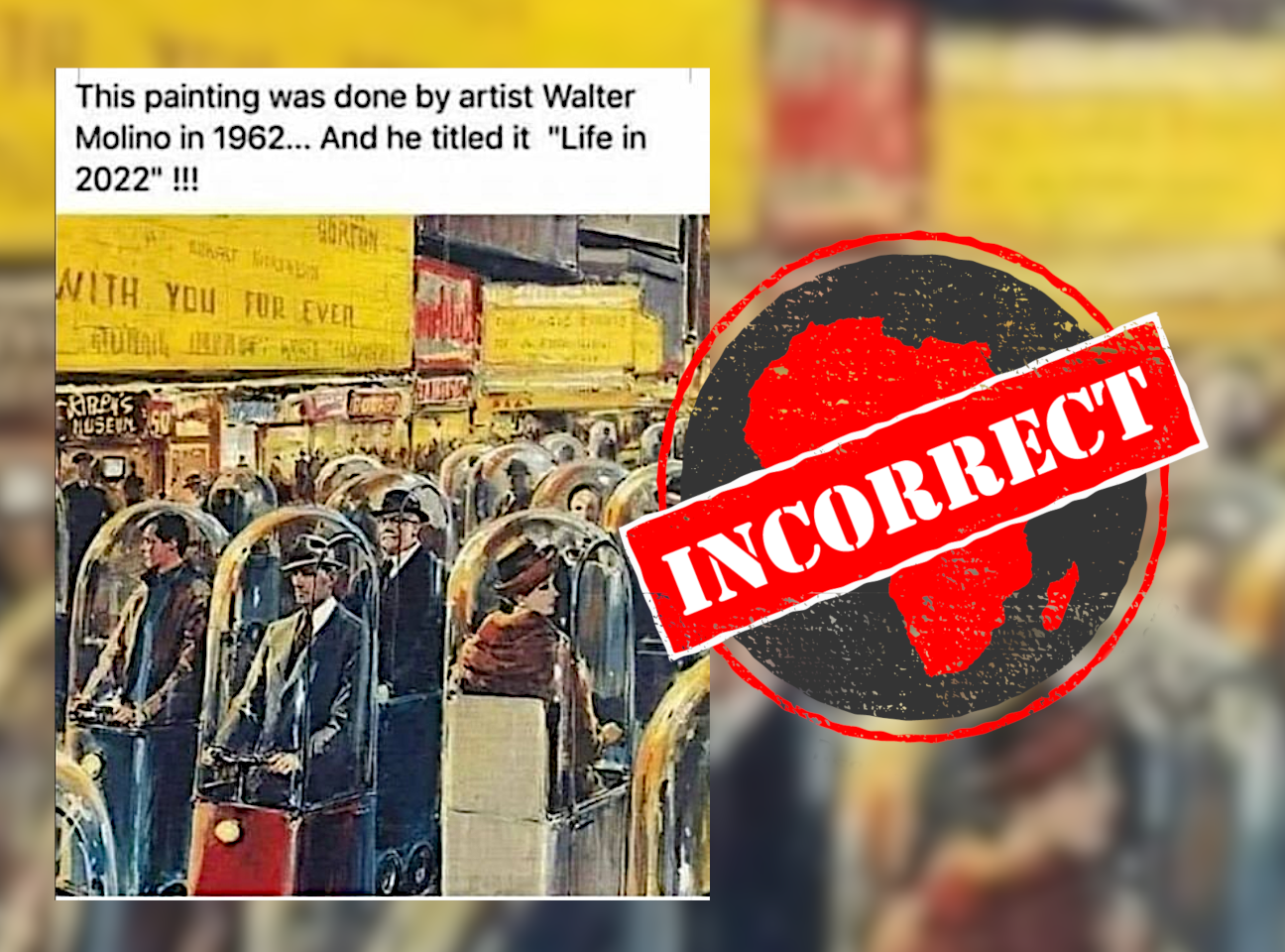Several Facebook users in South Africa have posted an illustration of people in futuristic-looking bubble-shaped cars.
The caption above the illustration reads: “This painting was done by artist Walter Molino in 1962 … and he titled it ‘Life in 2022’!!!”
Did a painting from nearly 60 years ago predict what life would look like in 2022? We checked.

Cover of Italian newspaper
A reverse image search of the illustration revealed that it was first published in the 16 December 1962 edition of La Domenica del Corriere, an Italian weekly newspaper.
It was painted by Walter Molino, “an Italian comic artist and illustrator, notorious for his sensational cover paintings”, according to Lambiek, a comic shop and art gallery in Amsterdam in the Netherlands.
Molino made political illustrations and comic sketches of “dystopian futures with advanced technology”, says Lambiek.
Fellow fact-checking organisation AFP contacted the archives department of La Domenica del Corriere. The head of the archives department, Francesca Tramma, confirmed that the illustration was on the cover of the newspaper.
But there is no evidence it was meant to represent the year 2022 specifically. Instead, Molino was depicting an undated future in New York City “in which a man goes crazy in a traffic jam”, Tramma said.
Republish our content for free
For publishers: what to do if your post is rated false
A fact-checker has rated your Facebook or Instagram post as “false”, “altered”, “partly false” or “missing context”. This could have serious consequences. What do you do?
Click on our guide for the steps you should follow.
Publishers guideAfrica Check teams up with Facebook
Africa Check is a partner in Meta's third-party fact-checking programme to help stop the spread of false information on social media.
The content we rate as “false” will be downgraded on Facebook and Instagram. This means fewer people will see it.
You can also help identify false information on Facebook. This guide explains how.


Add new comment